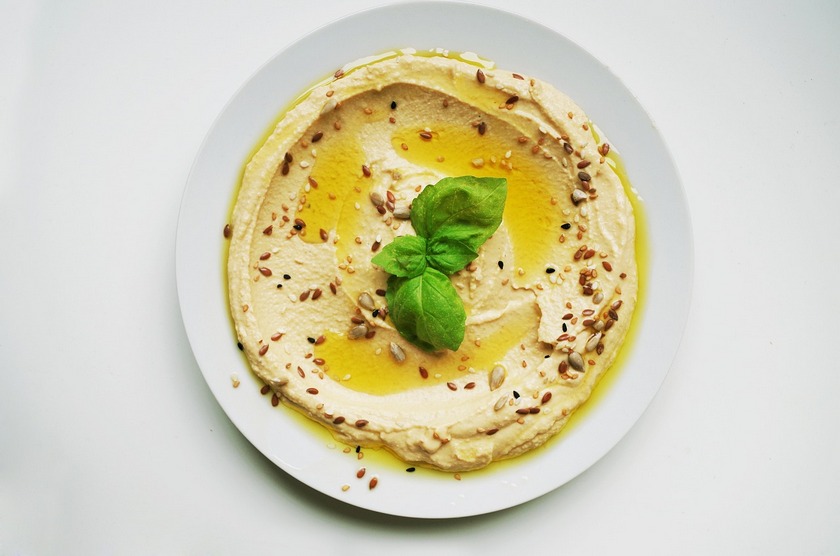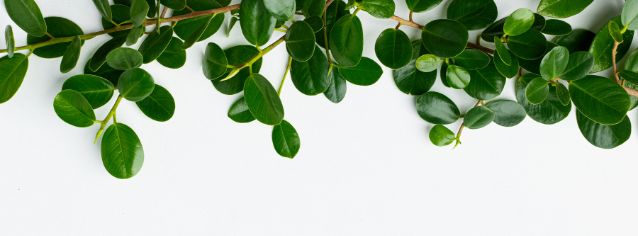Ever been asked where vegans get their protein? It is a question many plant-based enthusiasts face, with sceptics raising an eyebrow at the protein potential of a vegan diet. But guess what? Vegans can not only meet but surpass their protein needs through a carefully curated selection of plant-powered options.
Wait... Why Do We Need Protein?
Understanding the indispensable role of protein in our body is key to appreciating its significance. Constituting around 17% of our body weight, protein assumes a critical function as the primary component in the construction of muscles, skin, internal organs—most notably, the heart and brain—and various external features such as eyes, hair, and nails. However, its importance extends beyond structural elements. Protein is instrumental in fortifying our immune system, as it plays a vital role in producing antibodies essential for combatting infections. Furthermore, protein serves as a regulatory force in blood sugar management. This contributes to efficient fat metabolism and actively participates in the mechanisms governing energy functions.
The idea that vegans might fall short on this essential nutrient is a myth. In fact, experts affirm that a well-thought-out meatless menu can deliver not only a plethora of nutrients but also a satisfying protein punch. So, if you are questioning the protein possibilities in the vegan world, join us as we unveil the best protein sources! If you're a travelling vegan like us, eager to know what the best plant-based protein sources are for when you're on the road, here's our answer:
- roasted peanuts or a jar of peanut butter;
- canned (or jarred) beans, chickpeas or lentils;
- perhaps a pot of hummus.
There you go, easy-peasy! :) Number one is roasted peanuts because you don't need a spoon to eat it really, it's the least messy. And now, the full list:
The Main Protein Sources for Vegans: Legumes
According Dr Greger's widely used Daily Dozen, a healthy vegan should have at least three portions of legumes every day (due to the special types of amino acids or proteins they contain) - so we're gonna start with these wonderful beans!
#1. Peanuts and Peanut Butter
The reason I'd like to write a separate paragraph about peanuts is the following: whilst they are traditionally thought to be nuts, they are actually legumes. And even though Dr Greger categorizes peanuts as nuts for some reason I personally would like to argue against this due to their wonderful protein content and practicality: roasted peanuts are the easiest protein source for vegans who have no time to cook lentils or beans every day - or if you don't even have time to open a can of beans! A bag of roasted and salted peanuts can be bought at almost any supermarket or corner shop and there you go: one of your legume portions for the day (and truth be told, I've had busy days when I had peanuts and no other legumes). If you wanna go for the healthiest option, choose dry roasted and unsalted peanuts. And of course, we haven't even mentioned peanut butter... yumm!
#2. Beans
Kidney, black, pinto and a wide range of other beans deliver a substantial 15 grams of protein per cooked cup (170 grams). These legumes are also rich in fibre, potassium, complex carbs, iron, phosphorus, folate, manganese, and an array of beneficial plant compounds. Beans are undoubtedly a comprehensive nutrient source, contributing to heart health, blood enrichment, and overall well-being of your system. The quickest way to get beans into your diet is via canned beans (or cooked beans in glass jars if you're interested in the healthier option) - this is the second quickest way to get your recommended amount of legumes in every day. Just pop a can of beans open and grab a spoon. Done.
#3. Hummus (and chickpeas in general)
Yet another legume, yet another one of our favourite dishes that can very often be bought at supermarkets cheaply. If it isn't available, you can cook big batches of chickpeas, freeze them and then make your own hummus at home! Chickpeas are also great directly out of a can (like beans or
lentils) or a glass jar - if you prefer it the quick way.
#4. Lentils
Lentils (your 'one portion of legume a day') are a reliable protein source, boasting 18 grams of protein in a cooked cup (198 grams). Beyond protein, they contribute over half of your daily recommended fibre intake. The specific fibre in lentils supports a healthy gut by nourishing beneficial colon bacteria. Additionally, lentils may reduce the risk of diabetes, heart disease, excess body weight, and certain types of cancer. The inclusion of lentils in your diet not only elevates protein intake but also aligns with health-conscious choices for a balanced and nourishing vegan lifestyle. Lentils can also be bought in cans (though they aren't as tasty as canned beans I will admit).
#5. Green Peas
Green peas, often underestimated, pack a punch with nearly 9 grams of protein in a cooked cup (160 grams). This is a protein content surpassing that of a cup of dairy milk! But these little green gems aren't just about protein: over 25% of your daily fibre, thiamine, folate, manganese, and vitamins A, C, and K needs are met in a single serving. Green peas also play a role as a reliable source of iron, magnesium, phosphorus, zinc, copper, and a spectrum of B vitamins. This proves them as a great nutritional intake for vegans. Also, once again: they're legumes. Also, have you tried pea milk yet? It's so good, I swear I like it more than soy milk now.
#6. Tofu and Soy Milk
We consider tofu and soy milk legume-derived products because... well, they are made from soy beans, right? Tofu and soy milk provide approximately 20 grams of protein per cooked cup and per cup, respectively. These soy-based options are complete proteins, delivering all essential amino acids crucial for muscle development and repair.
They also have calcium, iron, and vitamin D, which contribute to bone health and overall well-being. Tofu's versatility in absorbing flavours and soy milk's creamy texture makes them not just protein sources but sweet dishes. Choosing them enriches both your plate and your nutritional needs! A quick note on soy milk: out of all the plant-based milk alternatives, soy milk is probably the healthiest and best choice when it comes to protein-content (and please try to choose one without any added sugar!)
Other Plant-Based Sources of Protein
A reminder: every plant contains some amount and types of amino acids (proteins) - so getting a variety of them will make sure your body gets everything it needs! Here are some further wonderfully protein-rich options for supplementing your three portions of legumes a day:
#1. Various Nuts and Seeds
Nuts and seeds play a versatile role as they offer a consistent supply of protein and energy throughout the day. Good examples include ground linseed, almonds, walnuts, and pumpkin seeds. Apart from being convenient snacks, you can seamlessly integrate them into meals. This serves as both a delicious flavour enhancer and a reliable source of essential proteins. Whether enhancing a salad or serving as a midday energy boost, an assortment of nuts and a selection of seeds exemplify professionalism in dietary versatility. They enrich your nutritional journey and make your body healthier.
#2. Oats and Oatmeal
Boosting protein intake becomes a flavourful endeavour with oats. Just half a cup (40 grams) of dry oats delivers a satisfying 5 grams of protein and 4 grams of fibre. Apart from protein, oats contribute magnesium, zinc, phosphorus, and folate to your nutritional needs. While not classified as a complete protein, oats surpass other commonly consumed grains like rice and wheat in offering higher-quality protein. Have an oatmeal every day, people!
#3. Brown and Wild Rice
Brown and wild rice offer 1.5 times more protein than other long-grain variates. A cooked cup (164 grams) delivers approximately seven grams of protein, accompanied by a rich blend of manganese, fibre, magnesium, phosphorus, B vitamins, and copper. This makes it an excellent pick for vegans looking to boost their protein intake.
#4. Protein-Rich Fruits and Vegetables
Not all fruits and veggies carry the same protein weight. For instance, spinach, broccoli, asparagus, potatoes, brussels sprouts, sweet potatoes, and artichokes each offer a robust 4–5 grams of protein per cooked cup. Fresh fruits bring their own nutritional flair, with guava, bananas, cherimoyas, blackberries, mulberries, and nectarines contributing a commendable 2–4 grams per cup. So, next time you are crafting a nutrient-rich plate, remember these vibrant options for a naturally protein-packed boost to your meals!
#5. Spirulina
Spirulina is another excellent source of plant-based proteins. It offers a robust 8 grams of protein per two tablespoons. What sets it apart is its exceptional nutritional profile, boasting a rich source of essential amino acids, vitamins, and minerals. It also has antioxidants that support immune function and provide a natural energy boost. Its iron content contributes to blood health, making it an ideal choice for vegans aiming to diversify their nutrient intake. Spirulina is more than a supplement; it is a powerhouse of nutrition that elevates your plant-based protein journey.
Wrap Up: Top Protein Sources for Vegans
While protein deficiencies are rare among vegetarians and vegans with a balanced diet, many seek to enhance their plant protein intake. This comprehensive guide serves as a valuable resource for those looking to embrace a diverse range of plant-based proteins. Whether you're a seasoned vegan or exploring plant-centric choices, these protein-rich options can fuel your journey toward a more robust and balanced diet.










